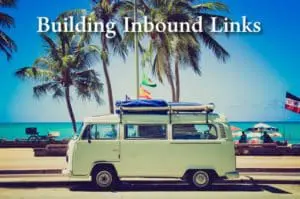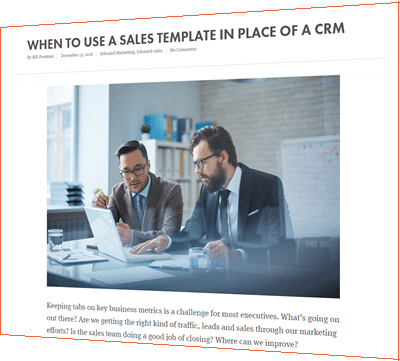 Building brand exposure is a key part of every marketing initiative, although mostly inbound marketers don’t talk about it. We talk about SEO and engaging content, and we talk about strategy and social media, but rarely do I hear inbound marketers talk about building brand awareness.
Building brand exposure is a key part of every marketing initiative, although mostly inbound marketers don’t talk about it. We talk about SEO and engaging content, and we talk about strategy and social media, but rarely do I hear inbound marketers talk about building brand awareness.
Nobody is going to buy from you if they have no idea you exist. If your goal is to increase sales and conversions, you must start by creating awareness and exposure for your company, products, and services.
However, generating significant brand exposure can be challenging in an industry where there is a lot of noise (ie., competition) and the differentiators among suppliers aren’t really clear to your target audience.
The search engines provide a great channel to make your products and services more visible and easy to find, but these days, everyone is SEO-savvy and those great keywords are getting harder and harder to rank for.
Build brand exposure through the search engines
Search engines are an easy place to start for exposing people to your brand. Let’s consider how you can improve your visibility in search engines:
- Organic search
- On-page and Off-page SEO
- Link building
- Paid search
On-page and off-page SEO
We’ve written quite a bit about on-page search engine optimization. These are the easy things like using your main keyword in the URL, page title, meta description, and headlines. If you’re not fully utilizing all aspects of on-page search optimization, check out our free SEO Training for Marketers.
Off-page SEO is harder to do, but the rewards are even grater: Off-page SEO accounts for about 75% of your overall search engine ranking, and is based on your “authority” on the Internet. So that begs the question: How do you GET authority? Authority is based on what other websites “say” about yours. OK, great, then how do websites “say” anything about other websites?
Links improve your organic search presence
One of the main ways to get authority is to increase the inbound links to your site. An inbound link is code on another website that links to yours. These links help to increase your search engine rankings. Links from authoritative websites mean more than links from sites that have low traffic and readership (i.e. low authority sites).
 Keep in mind that real links are made by real people, for real humans. And building real links will lead to higher rankings in the search engine results. By building quality and relevant links — editorial votes from real websites — you build signals of trust and authority to Google, which will help you move higher in their search results.
Keep in mind that real links are made by real people, for real humans. And building real links will lead to higher rankings in the search engine results. By building quality and relevant links — editorial votes from real websites — you build signals of trust and authority to Google, which will help you move higher in their search results.
As Google says, “The best way to get other sites to create high-quality, relevant links to yours is to create unique, relevant content that can naturally gain popularity in the Internet community. Creating good content pays off: Links are usually editorial votes given by choice, and the more useful content you have, the greater the chances someone else will find that content valuable to their readers and link to it.”
There are many ways to build inbound links to your website. Here are a few key methods for building legitimate inbound links.
1) Maintain a steady blog. Consistently creating great blog content that people naturally want to link to is one of the most tried and true ways to organically generate inbound links.
2) Write guest blog posts. Shop them around to blogs they’d be a good fit for. If one accepts, they should be willing to give you an inbound link in the post.
3) Write a book review. If you provide a comprehensive review about another author’s content, there’s a good chance they (and others!) will link to it.
4) Send out a joint press release when your news involves another company. This can help reach thousands of other related sites that, in a press release about just your company, may not have linked to your site.
5) Partner with companies in complementary industries. It’s common practice for corporate channel partners to link to each other’s great content, because they have a vested interest in one another’s success.
6) Install social sharing widgets. Just like “Tweet This” links get your content out there, so do social sharing buttons and widgets. Put them on your marketing content like case studies, whitepapers/ebooks, and blog posts!
7) Volunteer to be the subject of a case study. We’re always looking for customers who are willing to be the subject of a case study. Volunteer your time for one of your major vendors, and get a backlink from the case study once it’s published.
Links on other websites offer tremendous power in terms of brand exposure because they allow you to tap into another site’s audience. Not only is the link itself a mini advertisement, but a link can also drive referral traffic to your site. And if you’re building links the right way (on relevant websites) then you will be driving qualified traffic which can lead to increased conversions as well.
Every time a person comes across a link to your site from a site they trust, it’s an indicator of trust and authority. The more often someone encounters your links, the more positive associations they’ll make with your brand. Not only is this great exposure, but it’s also excellent branding
Paid search (PPC) for building brand exposure
I don’t have a lot of experience with paid search, so I’m not going to say anything about it in this post, except that it’s another good way to build brand awareness.
The takeaway
Building brand exposure and awareness is critical to your company’s ongoing success. If you want to increase conversions and sales you need to first increase brand awareness — nobody is going to buy from you unless they first know you exist.
One of the best ways to improve online brand awareness is to focus on your search visibility:
- Be sure to complete your on-page SEO for every page and blog post
- Gain exposure through qualified referral traffic from links on relevant and authoritative websites
- Utilize paid search strategies and best practices
You can also check our premium B2B SEO services to accelerate your traffic, leads, and sales.





